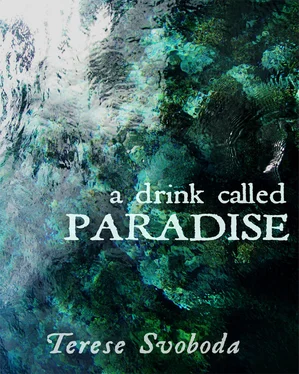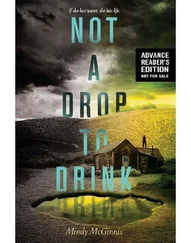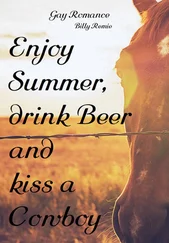Breasts for Three and two others surround her, they talk low to her about holy water and the missionary and what he told her, then they take the baby away, very slowly, as if the baby will stop crying just by their gentleness. They tell her everything will be fine, and one of them lays the baby in a nest of palms outside the shed while they talk to her, while they tighten the band around her. The young girl begins crying now like the baby, so quietly, while the women stroke her hair and murmur about the baby and the young girl and about how she must leave it.
I walk across the shell-strewn floor, each step crushing more shells that are crawling off.
The baby’s still crying, so low it could be two boughs of trees that don’t grow here crossing each other in a cold wind. Why let it cry? I’m about to lift up the bundle when I have to feel around it to get a grip, and this grip-getting pulls back its blanket, and despite the dazzling sun after the dark shed, I see its one eye. Where the other should be is skin. A sort of skin. But pulling back the blanket that much frees it, lets all the baby out. It rolls free, it shakes to a stop on the ground like jelly, and you can see it has no anus, you can see too why the jelly — it has no bones.
I turn my head as if that will block what I’ve seen, then I get up out of my crouch over the baby. It’s still making its noise. I fling the blanket over it, then I try to put it back together, jelly, eye, and all.
Clam Hold takes it away from me.
It’s almost dark, dusky enough so that a single gull overhead looks pink from below, when I find Ngarima’s son. I’ve been walking in circles to get land to continue under my feet as if it will lead somewhere. As if by walking I could get there, get to where the boat must be. I walk to be nowhere, and there is Ngarima’s son, with two friends. Each of them is digging into driftwood with a sort of hoe just the way I have seen people do it on film, and they are digging with these hoes to make a hole wider just as I come crashing through the bush.
I thought you said there were no boats here, I say as I come right up to them and their boat through the dark.
Tupaka , they all screech, and run off together.
I am reaching behind with both my arms, holding my arms backward, fingering the keys. Or what would be keys if a piano stood in Harry’s shack. I am humming all the parts to a melody I once liked, ghostly and grand, that I know will impress. I always impress when I play the piano backward, humming or singing. Though less in parlors than in bars — so few parlors with pianos, so few pianos unless they’re in bars.
I am thankful for Harry. Harry knows the tune, he even knows the score, he knows this is a piano I am gesturing toward, he can see I can finger. Without a piano, no one can say you missed a note or you play without feeling, mechanically, like a parlor trick. Anyone else on this island without parlors would want to lock me up for the strangeness of it — or laugh. People laugh at the strange first. But maybe not at jelly babies. Even Harry did not laugh at that. But perhaps Harry would have laughed at my playing the piano if I had not told him what I was doing. Perhaps the others would understand if I told them about it first, pianos being the missionary’s power band, the thumping equivalent of salvation earned, those gold chords. Perhaps old ivory from a missionary’s piano could be dug up, an F sharp sticking up out of the coral, with the car parts.
Harry has plied me with drinks, and that is how I begin to play. “To ply” suggests that I am pliable. I play. He empties the last of a bottle of scotch into a pitcher — no, a cracked coconut half, all he ever drinks from. He’s scraggly-bearded now, and all around him lie playing cards from tricks and games he’s tried to teach his ladies, but they won’t play, he says, they want only one thing. That one thing, I repeat, but my piano playing drowns me out, I am drowned.
It is time for him to tell his story. He can tell his story if he wants. But he doesn’t have to explain what he’s doing here if he doesn’t want to. Instead, he tells about being in Afghanistan as a hippie. It was a long time ago, he says, and I believe him. His hair was that long, he says, he says he had plenty of it then. It hung in clumps, the blue and pink dust of the cliffs that they passed clumped it, with the grease that was part of having that hair.
Why am I telling you this? he asks.
You said you don’t like things hanging. I point with my pinkie at the twist of straw and feather dangling over us. Someone hung it there, the Valkyrie, who is away, who is coming back any minute, who is gone just for now.
Oh, yes, he says. Veelu is afraid of the tupaka . You know, ghosts? This is supposed to catch them.
I touch my hair the way a woman does who was born brunette, who remembers she’s blond. Ghost. I start playing something soft with long, tiddly fingers, something that would scare boys in the bush.
She was hung, the woman I was with, he says.
Good grief. I stop playing and sip at the scotch from the coconut’s rim. Hung how?
She drove the truck. I was a hitchhiker, her hippie. She was going somewhere she was told to, and she was sad because in the same mail as the assignment the man she wanted wrote that he wanted someone else. She drove the truck fast through all that pink and blue, she was a cloud with wheels when she picked me up. We camped when she came to a stop and a cloud of blue and pink settled in our hair, our teeth, and our necks. We zipped our bags together, we wormed our way over the cinders of the fire I built from blown-around bushes, burning the bags a little, and we laughed about it, about that kind of love. That was the only time I heard her laugh.
I am looking out his window, where the moonlight is too bright. I want to interrupt, but I can’t get the words arranged. He stops talking, and what am I supposed to say? I sip and watch the shadows that the twist of straw and feathers make against the moon.
She could drive fast over those rutted, washed-out tracks. She drove as if she could drive out the bad letter she carried, as if driving away drove him away. She drove hard into a herd of goats. Goats were always on or off the road. She drove in and hit one. Or so she thought. The dust of the goats, the dust of her truck slowed down — who could tell?
When she saw what it was, she was out of the car. When they bore him away, she followed them. I followed her. I wasn’t going to sit in the truck and wait around. I wasn’t going to drive away with her truck either, though I did later. What I remember most about following is the women who rose up out of the big clumps of dirt and wailed over the boy. The blue and pink walls of the cliffs wailed.
We waited a day. It was decent of us, decent of them to bring us food, they who unrolled mats and let us lie in a warm room all night, lie without sleeping. The room had a hole in the roof that children and birds passed over. Only those who brought food came down the ladder that was left for us against that hole. I used it only once in the night, to pee off the roof.
She didn’t talk about how much she loved that man that night, she didn’t even talk about the boy, who he could have been. I didn’t make hippie talk. I showed her my flute. Did you have a flute in those days or just a piano?
I had a flute.
Well, then, you know how I could try to sound Afghani with my flute there in the dark. But I also did “Yankee Doodle,” “Hi-Ho Silver.” She wanted me to play anything. I didn’t know her, she was an older woman with a man who didn’t want her and a job waiting for her at the end of her drive. She dug latrines because she was a woman. That was what women did then, you know, to be women, to show they could be men if they wanted. She was helping the people, and she had another job at the end of the drive to show she could help, though she hadn’t been helping long — she knew about as much of their language as I did. After I put down the flute, I smoked what I had — she was asleep by then — and listened to the wailing.
Читать дальше












